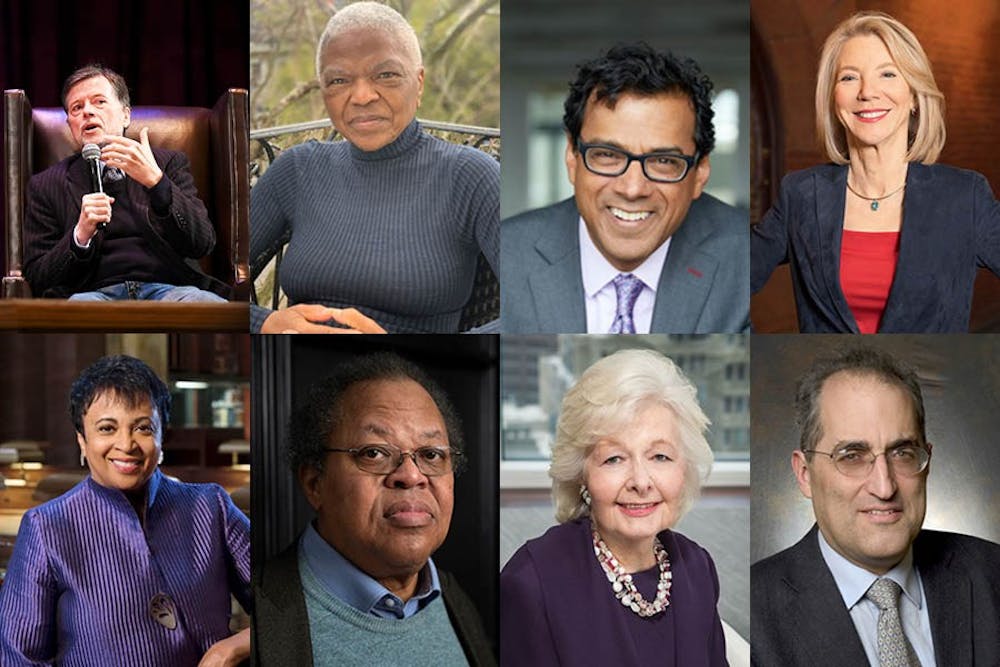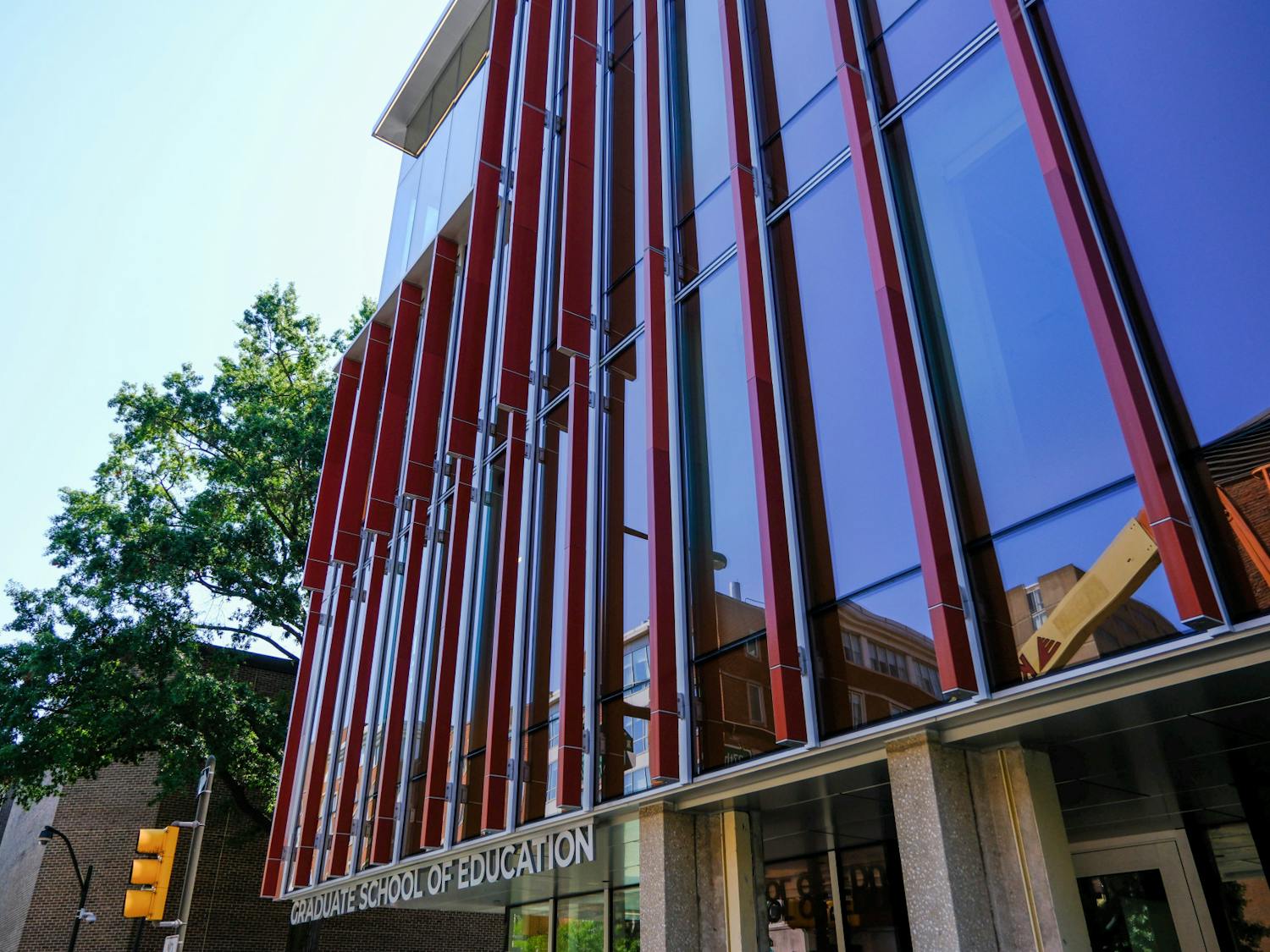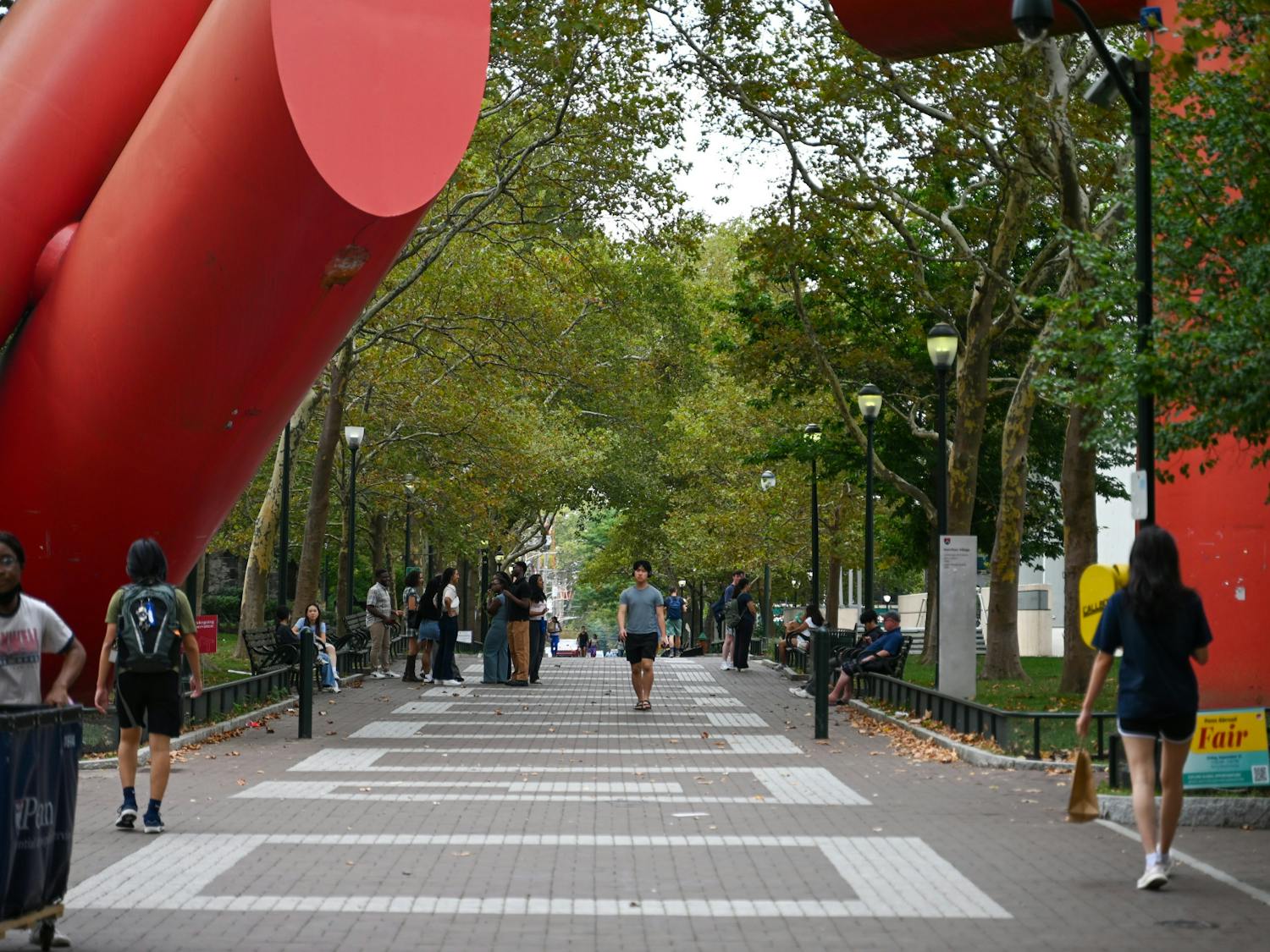A surgeon, a lawyer, and Amy Gutmann will walk onto the stage at commencement to receive their honorary degrees, celebrating their accomplishments in fields ranging from the arts to medicine.
This year’s cohort of recipients includes surgeon Atul Gawande and lawyer Margaret H. Marshall, as well as Librarian of Congress Carla D. Hayden, composer George E. Lewis, filmmaker Ken Burns, and physicist Edward Witten. Two Penn affiliates will also receive honorary degrees — outgoing University President Amy Gutmann and professor of history Mary Frances Berry.
Ken Burns
Burns, an internationally acclaimed documentary filmmaker, will receive an honorary Doctor of Arts degree and will deliver Penn’s 2022 Commencement speech on May 16.
Burns’s work has brought a variety of topics to life. Some of his best known documentaries include "The Civil War," "Baseball," "The Vietnam War," and "The Central Park Five." His films showcase in-depth research, stirring music, and his signature style of panning and zooming from image to image.
His latest project, "Benjamin Franklin," a two-part series detailing the life of Benjamin Franklin, premiered this year on PBS.
Mary Frances Berry
Berry, the Geraldine R. Segal Professor of American Social Thought, History, and Africana Studies Emerita at Penn, will receive an honorary Doctor of Humane Letters.
RELATED:
12 Penn students win 2022 President’s Engagement, Innovation, and Sustainability Prizes
Penn professor awarded 2022 Solvay Prize for research that laid groundwork for COVID-19 vaccine
In 2021, Berry was honored with the Lewis Award for History and Social Justice by the American Historical Association. In 2012, she received the Nelson Mandela Award from the South African government for her role in organizing the Free South Africa Movement in the United States.
Berry held a number of positions in public service. She was the assistant secretary for education in the U.S. Department of Health, Education, and Welfare during the Carter administration. She also served as the U.S. Commission on Civil Rights chair from 1993 to 2004.
Atul Gawande
Gawande, a renowned surgeon, writer, and public health leader, will receive an honorary Doctor of Sciences.
He practiced general and endocrine surgery at Brigham and Women's Hospital in Boston and was a professor in the Department of Health Policy and Management at Harvard University’s School of Public Health.
Gawande has published several books, including "Complications: A Surgeon's Notes on an Imperfect Science"; "Better: A Surgeon's Notes on Performance"; "The Checklist Manifesto"; and "Being Mortal: Medicine and What Matters in the End."
Today, Gawande serves on President Joe Biden’s COVID-19 Advisory Board and is the assistant administrator for global health at the U.S. Agency for International Development.
Amy Gutmann
Gutmann, who served as Penn's president from 2004 to 2022, will receive an honorary Doctor of Laws.
The longest-running president of Penn, she is known for championing affordable access to education and racial diversity on college campuses. During her time at Penn, the number of students identifying as first-generation, low-income jumped from one in 20 in 2004 to one in seven in 2022.
Gutmann oversaw a campus transformation, including the 23-acre Pennovation Works, the flagship Pennovation Center business incubator and laboratory, and off-campus buildings such as the Hub, the Radian, and Domus.
She chaired President Barack Obama’s Presidential Commission for the Study of Bioethical Issues for eight years, and was named by Fortune magazine in 2018 as one of the “World’s 50 Greatest Leaders.”
She was confirmed as the U.S. ambassador to Germany on February 8.
Carla D. Hayden
Hayden, who became the 14th Librarian of Congress in 2016 after the nomination of then-President Barack Obama, will receive an honorary Doctor of Humane Letters.
Hayden is the first woman and the first African American to lead the national library. She served as the library services coordinator for the Museum of Science and Industry and an assistant professor of library and information services at the University of Pittsburgh. Hayden later served as deputy commissioner and chief librarian of the Chicago Public Library.
In January 2010, Obama nominated Hayden to be a member of the National Museum and Library Services Board and she was confirmed later that year.
George E. Lewis
Lewis — a musician, composer, and professor — will receive an honorary Doctor of Music.
Lewis serves as the Edwin H. Case Professor of American Music at Columbia University. He also serves as area chair in composition and faculty member in Historical Musicology.
Lewis’ compositions include "The Will To Adorn," "Emergent," and the opera "Afterword."
His written work explores music, technology, and race. His book "A Power Stronger Than Itself: The AACM and American Experimental Music" received the American Book Award and the American Musicological Society’s first Music in American Culture Award.
Margaret H. Marshall
Marshall, a lawyer and Chief Justice of the Supreme Court of Massachusetts, will receive an honorary Doctor of Laws degree.
Appointed to Associate Justice in 1996, Marshall then became the first woman to be named Chief Justice of the Supreme Court of Massachusetts.
Marshall served as Vice President and General Counsel of Harvard University, the first woman to do so, before joining the court. She was also president of the U.S. Conference of Chief Justices and Chair of the Board of the National Center for State Courts.
Edward Witten
Witten, a mathematician and physicist, will receive an honorary Doctor of Sciences.
Witten is a leader in theoretical physics, string theory, and pure mathematics. As the Charles Simonyi Professor in the School of Natural Sciences at the Institute for Advanced Study in Princeton, N.J., Witten conjectured in 1995 that the then-five competing notions of string theory could be unified under a single description. This hypothesis, M-theory, led to the “second superstring revolution.’’
Witten is also an advocate for peace in the Middle East and serves on the board of directors of Americans for Peace Now and on the advisory council of J Street.









